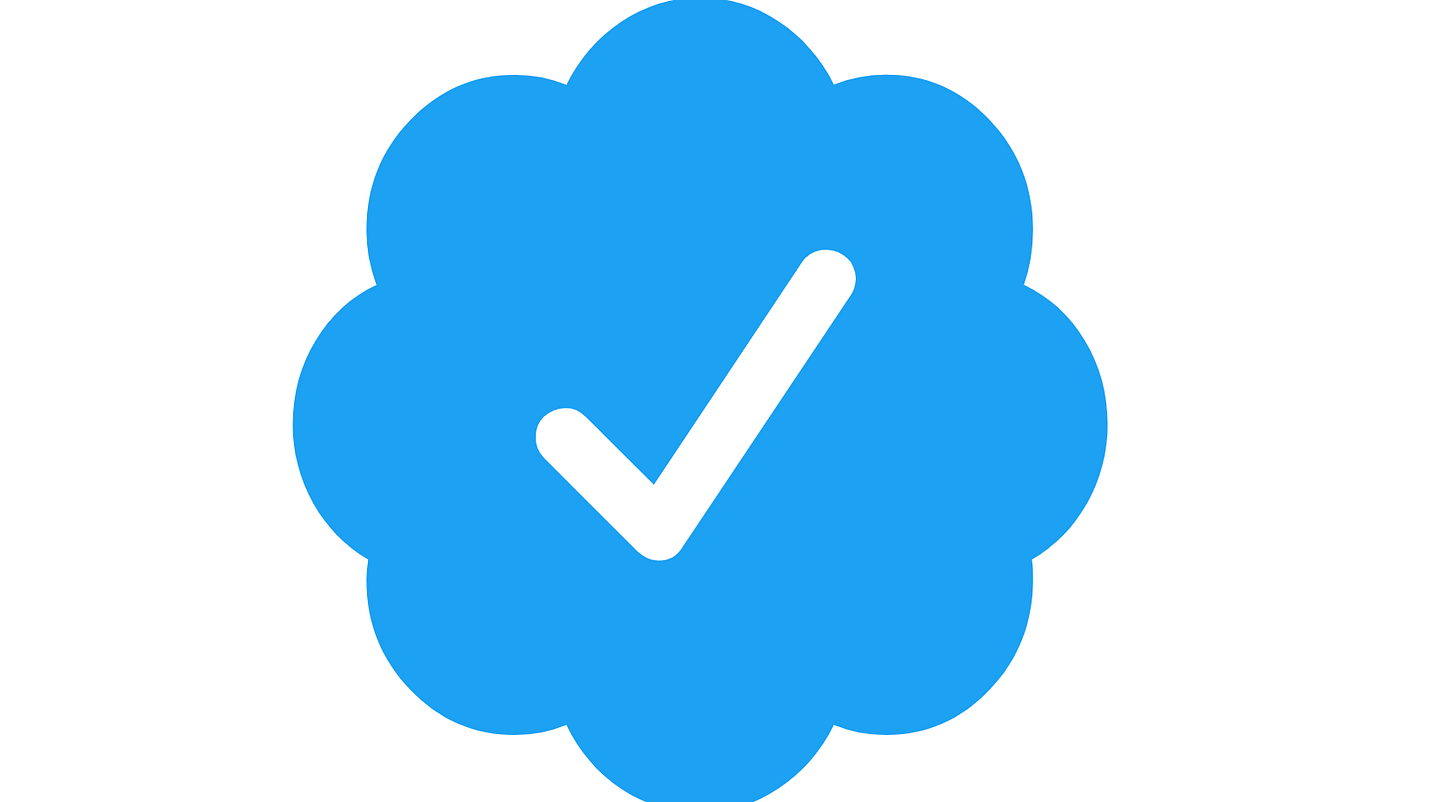On Blue Checks
Why those who remain on Twitter without blue checks are in the least defensible position ethically.
On Twitter, it is incredibly common for anti-Elon people who have stuck around to castigate anyone for daring to have a “blue check” — that they pay a subscription for premium features, visibly represented on their profile with a blue checkmark. After all, isn’t that putting money directly in the pocket of a man who is funding so much destruction through projects like DOGE and the America PAC? On the contrary, with some deeper analysis, it is clearly the people with significant followings who don’t get the blue check that are in the least defensible position ethically.
A core feature of the paid features is the ability to participate in the revenue sharing program. Depending on the amount of engagement you get, every other week, you get paid a cut of the revenue that was generated by your presence on the site. For small accounts, this is absolutely unlikely to make back the cost of the subscription, and there are hordes of MAGA and crypto scam bots with tiny followings who fork over cash hoping that maybe stuff like the reply boosting will help them get noticed.
However, while it is near impossible to make the type of money that could replace having a job, a la YouTube or Twitch, coming out ahead is fairly easy if you are active on Twitter anyway with more than a tiny following. With nine thousand followers, I have never even once had a month were I have come out in the red, despite having some lulls in regular activity. When I do post a lot, I easily break $100/mo. — which, while not exactly a lot of money, it is more than an order of power more than the $8/mo. I pay for Twitter.
A lot of people weirdly seem to think that simply participating on Twitter is a neutral act. Every time you post on Twitter, you are putting money in Elon’s pocket in the form of ad revenue and maintaining network effects that keep other people posting on there and also giving him ad revenue. Though you may not be paying Elon with your credit card, you are paying him with your labor — even if that labor takes the form of having a fun time shitposting with your friends.
Buying a blue check certainly does not wash your hands of this. The revenue sharing program is designed in a way to be in the financial interest of the company. The total amount distributed is deliberately and specifically kept lower than the total amount coming in from all of the subscriptions. The only reason it is easily profitable for anyone with a remotely substantial following is just because of the volume of scammers and chuds participating.
But that is all the more reason that buying a blue check puts you in a more ethical position — not only are you making Elon pay you for your labor of posting on the site, it’s all a zero sum game where you are taking money out of the pockets of scammers and fascists.
Of course, the most ethically defensible position is simply to boycott Twitter altogether to starve Elon of the content and network effects that your presence would provide. When someone boycotting Twitter criticizes my continued existence on Twitter, I have to admit they are entirely in a position to do so. However, in the vast majority of cases, it is people who have stuck around on Twitter who have deluded themselves into thinking that is not also “putting money in Elon’s pocket.”
Without thinking about the full range of downstream effects of one’s behavior — a common pattern of ragingly holier-than-thou people on social media — it is easy to criticize people who are having a less negative impact than yourself by latching onto specific things that are supposedly unforgivable sins while ignoring the rest. It’s the exact same mentality that leads people to panic about the power consumption of ChatGPT while never even thinking twice about how much goes into getting that 4K Netflix stream to their TV. None of us are pure, but only some of us are genuinely thoughtful about more than just the moral panics du jour.


